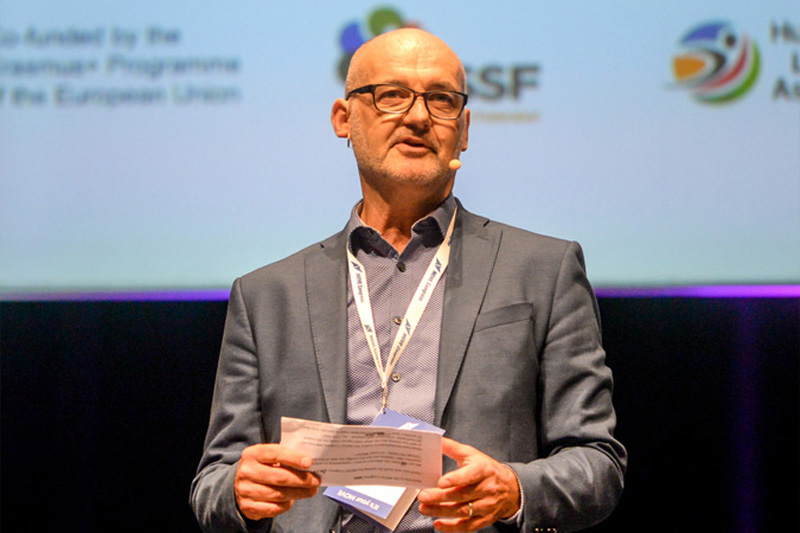"Healthier individuals and communities lead to a more equitable, sustainable, and prosperous world. ISCA recognises that regular physical activity is a key contributor to good health."
Mogens KIRKEBY - ISCA President
The Sustainable Development Goals (SDGs) are a collection of 17 global objectives established by the United Nations in 2015. They target three dimensions of sustainability and sustainable development: namely the environment, the economy and society. A global consensus exists stating that the SDGs are the best framework for addressing pressing international challenges including poverty, inequality, climate change and environmental degradation.

"Healthier individuals and communities lead to a more equitable, sustainable, and prosperous world. ISCA recognises that regular physical activity is a key contributor to good health."
Mogens KIRKEBY - ISCA President

"Regular physical activity is essential not only for improving individual health but also for reducing healthcare costs and promoting sustainable development.”
Jacob SCHOUENBORG - ISCA Secretary General
The third UN Sustainable Development Goal (SDG 3) is to “ensure healthy lives and promote well-being for everyone at all ages.” Physical activity plays a crucial role in achieving this. While ISCA’s numerous initiatives are very different, they all have the overriding aim of improving the mental and physical health of participants.
One of the key targets under SDG 3 is to reduce premature mortality from non-communicable diseases (NCDs) like as cardiovascular disease, diabetes, and cancer. Engaging in regular exercise helps control weight, improves cardiovascular health and enhances immune function, thereby reducing the likelihood of developing NCDs.

"ISCA's many diverse projects are carefully adapted to the specific circumstances of each country or community where they are implemented. Sustainability lies at the heart of every initiative, with each project designed to deliver a tangible positive impact—not only on individuals but also at a local and national level."
Saska Benedicic TOMAT – Head of Projects
Physical activity also contributes to good mental health, which is another critical aspect of SDG 3. The rise in mental health disorders such as depression and anxiety can be mitigated through regular physical exercise and communal participation.

Promoting physical activity can also help achieve SDG 4 (quality education) by improving cognitive function and academic performance in children. Schools that incorporate physical education and physical activity programmes not only enhance the physical well-being of their students, but also their ability to concentrate and succeed academically.
By providing inclusive spaces, challenging stereotypes and promoting empowerment sport can drive social change and create the conditions to achieve SGD 5 (to achieve gender equality and empower all women and girls) Sport challenges traditional gender norms by showcasing the strength, skill, and leadership abilities of women and girls.


Regular physical activity is also linked to SGD 10 (reducing inequalities). Access to safe spaces for exercise and affordable opportunities for physical activity ensures that all individuals, regardless of socio-economic status, can maintain a healthy lifestyle and be a valued member of the community.
Physical activity also contributes to achieving SDG 11 (sustainable cities and communities). ISCA supports the transformation of underused urban public spaces into new locations for community activities. It also promotes active transportation methods such as walking and cycling which reduces air pollution, decreases traffic congestion and improves urban living conditions.


Finally, we strive to enhance awareness of climate change through our day-to-day activities, in line with SDG 13, which aims to mitigate and adapt to its effects. Wherever possible, we are committed to sustainable practices in our activities, and we firmly believe that international collaboration under the UN’s Paris Agreement will help achieve this goal.